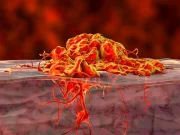Second study shows that only 14 percent of patients correctly identified symptoms requiring epinephrine
By Elana Gotkine HealthDay Reporter
FRIDAY, Oct. 25, 2024 (HealthDay News) — Many anaphylaxis protocols are incomplete and/or outdated, and there is a need for patient education regarding treatment of anaphylaxis, according to two studies presented at the annual meeting of the American College of Allergy, Asthma & Immunology, held from Oct. 24 to 28 in Boston.
Carly Gunderson, D.O., from the Baylor College of Medicine in San Antonio, and colleagues reviewed allergic reaction and/or anaphylaxis protocols for 30 states with mandatory or model state-wide Advanced Cardiac Life Support protocols. The researchers found that only 50 and 40 percent of the states included gastrointestinal symptoms and neurological manifestations, respectively, in the definition of anaphylaxis. A two-organ system definition was used by 47 percent. All of the protocols recommended diphenhydramine and epinephrine for anaphylactic reactions. If respiratory symptoms were present, 90, 73, and 60 percent recommended albuterol, intravenous fluids, and steroids, respectively. In 97 percent of protocols, epinephrine was the first-line recommendation for anaphylaxis.
Joni Chow, D.O., also from the Baylor College of Medicine, and colleagues surveyed 96 patients/caregivers in the waiting room of an allergy clinic to assess knowledge of anaphylaxis. The researchers found that 95.8 percent of respondents were prescribed epinephrine. Overall, 14 percent correctly identified symptoms requiring epinephrine, although 73 percent agreed or strongly agreed with feeling comfortable with recognizing anaphylaxis symptoms. Almost one-quarter (23.7 percent) would treat with antihistamine first during an anaphylactic episode, although 85 percent stated that antihistamines do not prevent the need for epinephrine.
“The results demonstrate the need for better education of allergy patients to recognize and treat anaphylaxis appropriately,” Chow said in a statement.
Copyright © 2024 HealthDay. All rights reserved.



















